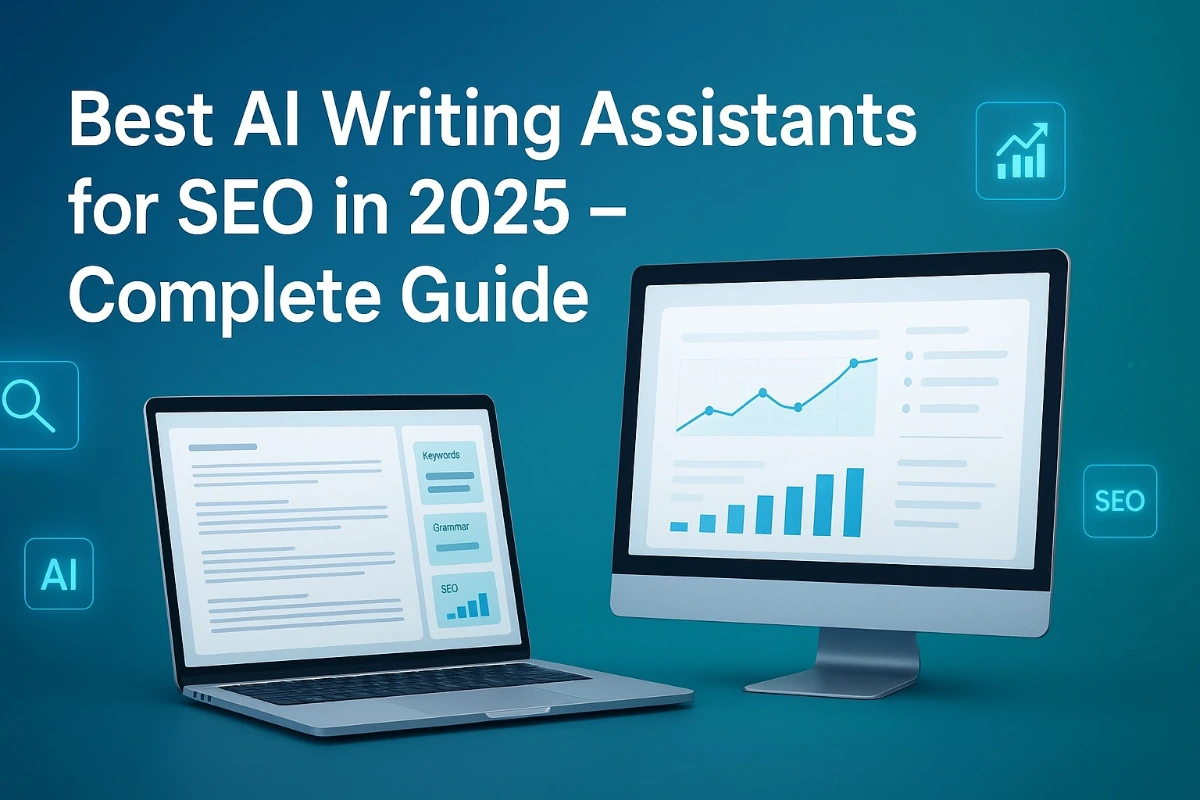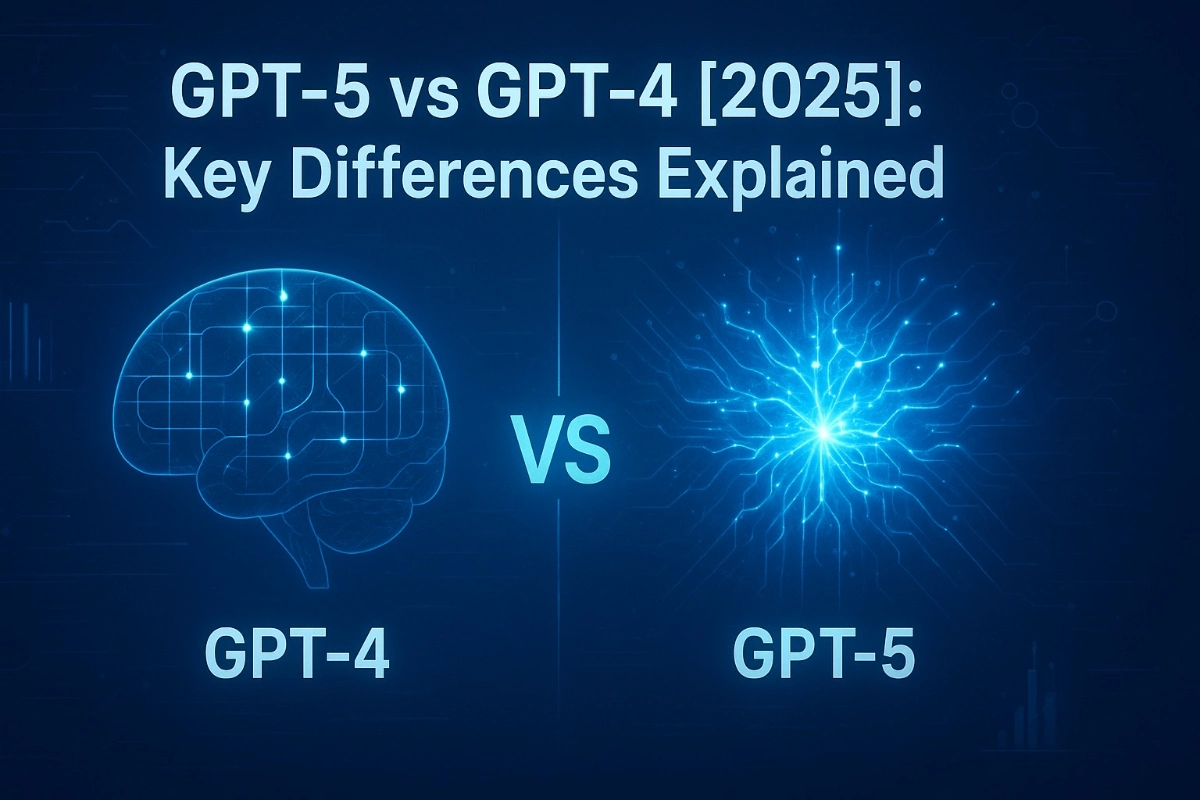Introduction
The best AI writing assistants for SEO 2025 are transforming how brands, bloggers, and marketers produce content. Search engine optimization has become more competitive than ever, with Google focusing on expertise, authoritativeness, and trustworthiness (E-E-A-T) as ranking factors.
In 2025, AI content writing tools have evolved far beyond simple text generators. Today’s SEO copywriting software can analyze search intent, recommend high-ranking keywords, and produce fully structured, optimized articles in minutes.
This guide reviews the top AI writing assistants for SEO in 2025, comparing features, pros, cons, and best use cases so you can select the right tool for your content marketing strategy.
1. Why AI Writing Assistants Matter for SEO in 2025
Google’s algorithms are now advanced enough to detect keyword stuffing, low-quality writing, and duplicate content. Producing SEO-friendly content requires strategic keyword usage, strong structure, and unique insights — exactly where AI tools excel.
Key reasons AI blogging tools are essential in 2025:
- Speed & Scale – AI can create blog drafts in minutes, letting brands publish more without compromising quality.
- Keyword Optimization – The best AI writing assistants can recommend target keywords, monitor density, and ensure natural placement.
- Content Structuring – Tools suggest headings, meta descriptions, and schema markup for better rankings.
- Audience Personalization – AI adjusts tone, complexity, and style based on the target audience.
Example: If you run a fitness e-commerce store, AI can generate SEO product descriptions, blog posts targeting “best home workout machines,” and FAQ sections optimized for voice search — all from one platform.
2. How to Choose the Right AI Tool for SEO
When selecting the best AI writing assistants for SEO 2025, consider:
- Content Type – Long-form guides, short reviews, or ad copy? Some tools specialize in certain formats.
- SEO Features – Look for integrated keyword research, competitor analysis, and SERP insights.
- Ease of Use – A simple interface is key for beginners.
- Cost vs. Value – Premium tools offer analytics and integrations but may be unnecessary for smaller projects.
Integration – Ensure compatibility with WordPress, Google Docs, or Shopify.
3. AI Writing Assistants for SEO in 2025
4.1 ChatGPT (OpenAI GPT-5)
Best for: Long-form SEO articles, detailed outlines, and keyword-rich multilingual content.
Pros:
• Exceptional natural language understanding for precise, human-like content.
• Multi-language SEO support, ideal for global targeting.
• Generates meta tags, structured outlines, FAQs, and schema-ready content.
• Strong adaptability for different niches — from technical blogs to creative storytelling.
Cons:
• Requires manual fact-checking for niche or highly technical topics.
• Can produce generic intros if prompts are vague.
Example Use Case: Creating a 3,000+ word SEO-optimized travel guide targeting multiple countries with localized keywords, meta descriptions, and internal link strategies.

4.2 Jasper AI
Best for: Agencies and brands needing a consistent, polished brand voice across all channels.
Pros:
• 50+ templates for blogs, ad copy, email campaigns, and social media posts.
• Built-in SEO mode with keyword recommendations and SERP insights.
• Team collaboration features for editing and approval workflows.
• Strong integration options with Surfer SEO and Grammarly.
Cons:
• More expensive than many competitors, especially for small businesses.
• Requires some training to maximize brand tone settings.
Example Use Case: Producing a 10-post campaign for a product launch, each with optimized keywords, consistent brand voice, and meta tags.
4.3 Surfer AI
Best for: Data-driven SEO optimization with competitive analysis.
Pros:
• Real-time keyword scoring and content optimization suggestions.
• Competitor gap analysis to identify missing topics.
• Direct Google Docs and WordPress integration for faster publishing.
• Provides structured content guidelines for ranking improvements.
Cons:
• Less creative and natural for narrative-heavy or storytelling content.
• Works best when paired with another AI writer.
Example Use Case: Updating an underperforming blog post by matching competitor word counts, keyword usage, and topical depth for higher rankings.
4.4 KoalaWriter
Best for: Affiliate marketing and comparison-based SEO content.
Pros:
• Creates optimized product comparison tables and pros/cons lists.
• Perfect for Amazon affiliate blogs with built-in formatting.
• Fast first drafts for niche product reviews.
• AI outlines tailored to high-intent search queries.
Cons:
• Less intuitive interface for absolute beginners.
• Limited customization for non-affiliate content formats.
Example Use Case: Writing a 2,000-word comparison article on “Best Budget Laptops 2025” with affiliate links and structured product tables.
4.5 Writesonic
Best for: Multi-channel marketing campaigns and SEO-focused blogging.
Pros:
• Built-in fact-checking to reduce misinformation.
• Chat-based editing workflow for collaborative refinement.
• Adjustable tone, style, and length for different platforms.
• Can generate blog posts, ads, landing pages, and product descriptions in one place.
Cons:
• Sometimes over-optimizes keywords, affecting readability.
• Limited creative flexibility in highly niche topics.
Example Use Case: Running a marketing campaign where social media ads, blog posts, and email newsletters all share the same optimized core message.
4.6 Copy.ai
Best for: Short-form SEO content, ad copy, and lead-generation funnels.
Pros:
• Beginner-friendly drag-and-drop interface.
• Great for creating attention-grabbing ad headlines and CTAs.
• Templates for LinkedIn posts, Facebook ads, Instagram captions, and more.
• Generates multiple copy variations instantly for A/B testing.
Cons:
• Weak for long-form or deeply researched content.
• Limited SEO analytics compared to Surfer AI or Frase.io.
Example Use Case: Creating 20+ ad variations for a Facebook retargeting campaign, each optimized for engagement and click-through rate.
4.7 Frase.io
Best for: Combining deep SEO research with AI-powered content creation.
Pros:
• SERP-based topic clustering for content planning.
• Built-in FAQ schema generator to improve rich snippet chances.
• Content scoring to match or beat competitors’ topical coverage.
• AI-assisted brief creation to guide writers.
Cons:
• Steeper learning curve for new users.
• Requires subscription to unlock full SEO analytics features.
Example Use Case: Creating an editorial calendar with optimized blog briefs for an entire quarter, based on competitor analysis and keyword clustering.
4. Tips to Maximize SEO Results with AI Writing Tools
To get the most from the best AI writing assistants for SEO 2025, follow these steps:
- Always Edit: Review AI output for tone, accuracy, and brand alignment.
- Combine AI & Human Insight: Let AI handle structure; you provide expertise.
- Advanced Keyword Research: Identify primary, secondary, and LSI keywords before writing.
- Optimize for Click-Through Rates: Write compelling meta descriptions.
- Update Content Regularly: Keep old posts fresh with new data and keywords.
- Leverage AI for Internal Linking: Suggests relevant in-site links to improve SEO.
- Use AI to Generate Schema Markup: Helps Google better understand your content.
Final Thoughts
The best AI writing assistants for SEO 2025 can dramatically improve your content marketing efficiency.
- For long-form, keyword-rich content – ChatGPT (GPT-5) and Jasper AI excel.
- For data-backed optimization – Surfer AI and Frase.io are unbeatable.
- For affiliate SEO – KoalaWriter is perfect.
- For multi-platform marketing – Writesonic is a strong choice.
Remember: AI is a support tool, not a full replacement. The best results come from blending AI speed with human creativity and expertise.
FAQs
Q1. What is the best AI writing assistant for SEO in 2025?
The best AI writing assistant depends on your goals. ChatGPT (GPT-5) is excellent for long-form content, Surfer AI is ideal for keyword optimization, and Jasper AI works well for brand-specific tone.
Q2. Are AI writing tools good for SEO?
Yes. AI content writing tools help optimize keyword usage, improve content structure, and speed up production — but they should be combined with human editing to maintain quality and authenticity.
Q3. Can AI replace human writers for SEO content?
Not entirely. While AI can produce optimized drafts quickly, human writers add creativity, brand voice, and real-world expertise, which Google values under E-E-A-T guidelines.
Q4. Which AI tool is best for keyword optimization?
Surfer AI and Frase.io are strong for keyword optimization because they analyze competitors, suggest LSI keywords, and track on-page SEO performance.
Q5. Do AI writing assistants work for all niches?
Yes, but effectiveness varies. AI works best for informational, listicle, and product-based content. Highly technical or sensitive topics may require more human input.
Q6. Are AI-generated articles safe for Google rankings?
Yes, as long as they are original, fact-checked, and provide real value. Avoid thin, spammy content, as Google penalizes low-quality AI-generated pages.
Q7. What’s the cost of AI writing assistants?
Costs range from free (basic ChatGPT) to $99+/month for premium tools like Jasper or Surfer AI. Pricing often depends on features, word limits, and integrations.










![GPT-5 Powers Real-World AI Smarts [2025]](https://inovrex.com/wp-content/uploads/2025/08/WhatsApp-Image-2025-08-22-at-12.59.10_827e8782.jpg)
![AI Augmented Reality Marketing [2025]: 6 Creative Use Cases](https://inovrex.com/wp-content/uploads/2025/08/WhatsApp-Image-2025-08-11-at-11.41.12_8bed2f33.webp)
![AI Cloud Computing for Small Business: 7 Powerful Use Cases [2025]](https://inovrex.com/wp-content/uploads/2025/08/WhatsApp-Image-2025-08-04-at-11.37.09_64b1d87d.webp)